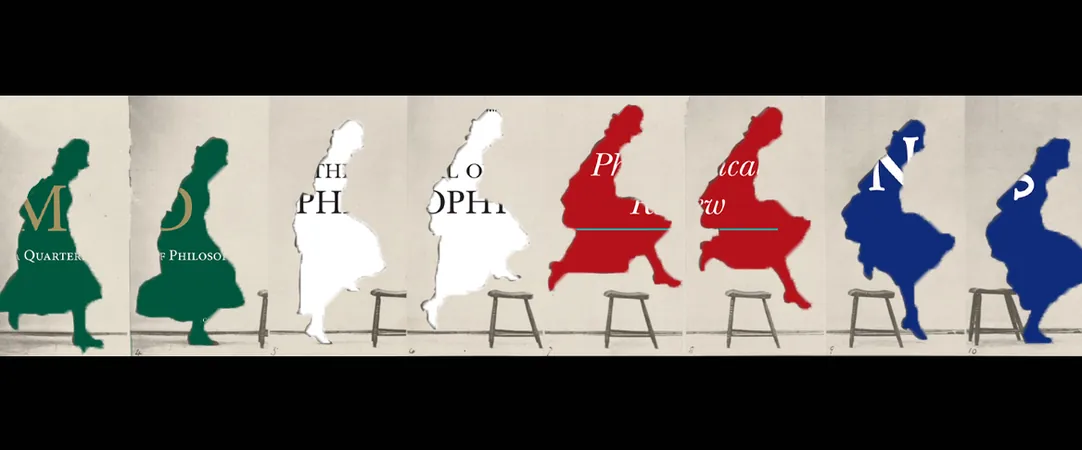
The Gender Gap in Elite Philosophy Journals: A Stubborn Disparity
2025-04-28
Author: Wei
A Closer Look at Gender Representation in Philosophy
When it comes to elite philosophy journals, the question of women's representation looms large. Eric Schwitzgebel from UC Riverside dives deep into the statistics to unveil a striking gender disparity in this esteemed academic field.
Progress or Stagnation?
While the presence of women in philosophy education has seen a welcome boost—rising from 32% to around 40% of graduating majors since the 1980s—this progress contrasts sharply with the gender breakdown in the profession's upper echelons. Despite increased awareness of gender issues and calls for diversity, the highest impact opportunities in philosophy remain dominated by men.
The Cold, Hard Numbers
To substantiate these claims, Schwitzgebel analyzed two years' worth of articles from the top-tier journals: *Philosophical Review*, *Mind*, *Journal of Philosophy*, and *Noûs*. His findings reveal a staggering imbalance: - Women: 46 authorships - Men: 243 authorships - Non-binary/classified: 2 authorships - Total percentage of female authors: only 16%.
Comparative Statistics: A Distressing Trend
Though women now earn approximately 30% of PhDs in the U.S. and represent about 30% of members in the American Philosophical Association, their authorship rates in elite journals starkly contradict these figures. This trend isn't just a U.S. issue but reflects similar disparities in other high-income Anglophone countries.
A Closer Look at Specializations
One argument for this discrepancy is that women tend to concentrate in ethics, an area less represented in top journals. To explore this, Schwitzgebel categorized articles from the big four journals into 'ethics' or 'non-ethics'. Interestingly, a significant portion of the authorship demonstrated that women were more likely to publish in the ethics category:
Findings on Ethics Authorship
- In the top four journals, 28% of ethics authorships were by women (17 out of 60). - In non-ethics categories, women only accounted for 13% (29 out of 231). - Bolstering the sample with two elite ethics journals—*Ethics* and *Philosophy & Public Affairs*—the numbers further illustrated the trend: women authored 29% of ethics articles.
Conclusion: A Call for Change
The findings paint a disheartening picture of gender representation in elite philosophy journals, prompting urgent questions about inclusivity and equity. The road to a balanced intellectual landscape in philosophy is long, but recognizing these disparities is the first step towards meaningful change.






 Brasil (PT)
Brasil (PT)
 Canada (EN)
Canada (EN)
 Chile (ES)
Chile (ES)
 Česko (CS)
Česko (CS)
 대한민국 (KO)
대한민국 (KO)
 España (ES)
España (ES)
 France (FR)
France (FR)
 Hong Kong (EN)
Hong Kong (EN)
 Italia (IT)
Italia (IT)
 日本 (JA)
日本 (JA)
 Magyarország (HU)
Magyarország (HU)
 Norge (NO)
Norge (NO)
 Polska (PL)
Polska (PL)
 Schweiz (DE)
Schweiz (DE)
 Singapore (EN)
Singapore (EN)
 Sverige (SV)
Sverige (SV)
 Suomi (FI)
Suomi (FI)
 Türkiye (TR)
Türkiye (TR)
 الإمارات العربية المتحدة (AR)
الإمارات العربية المتحدة (AR)